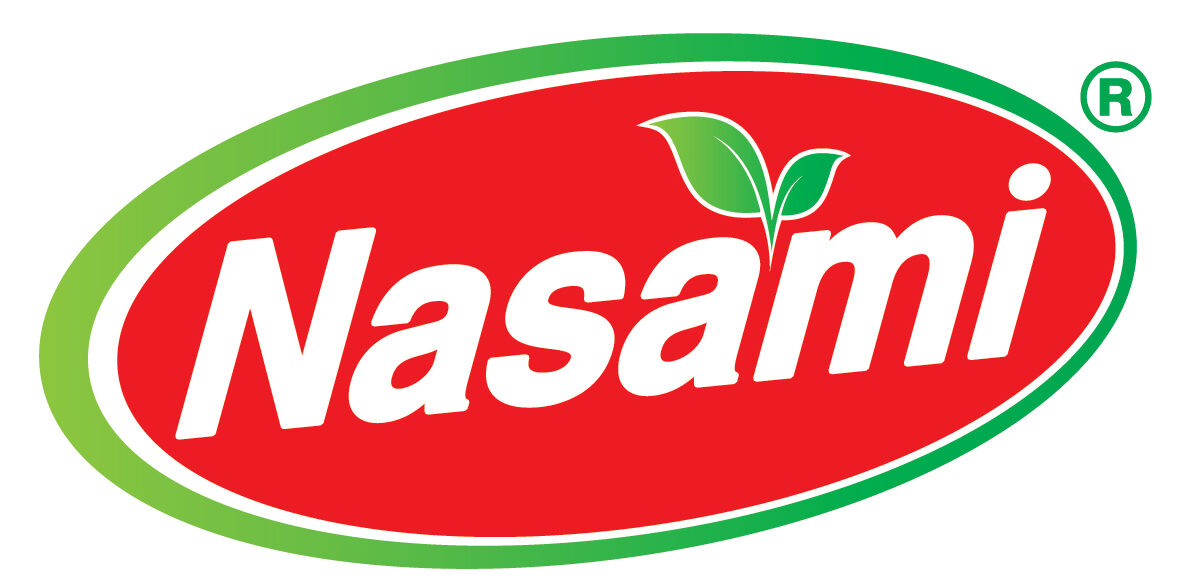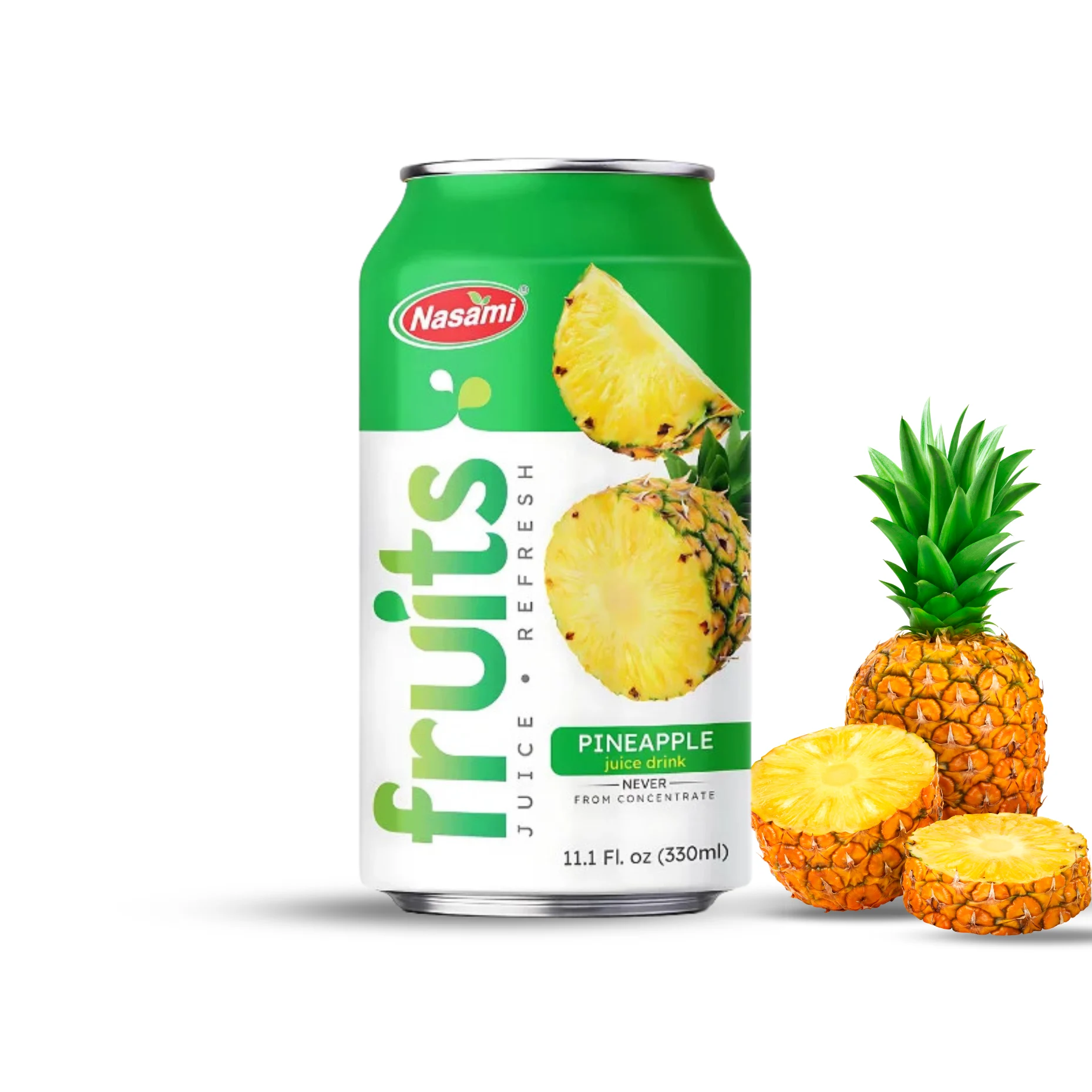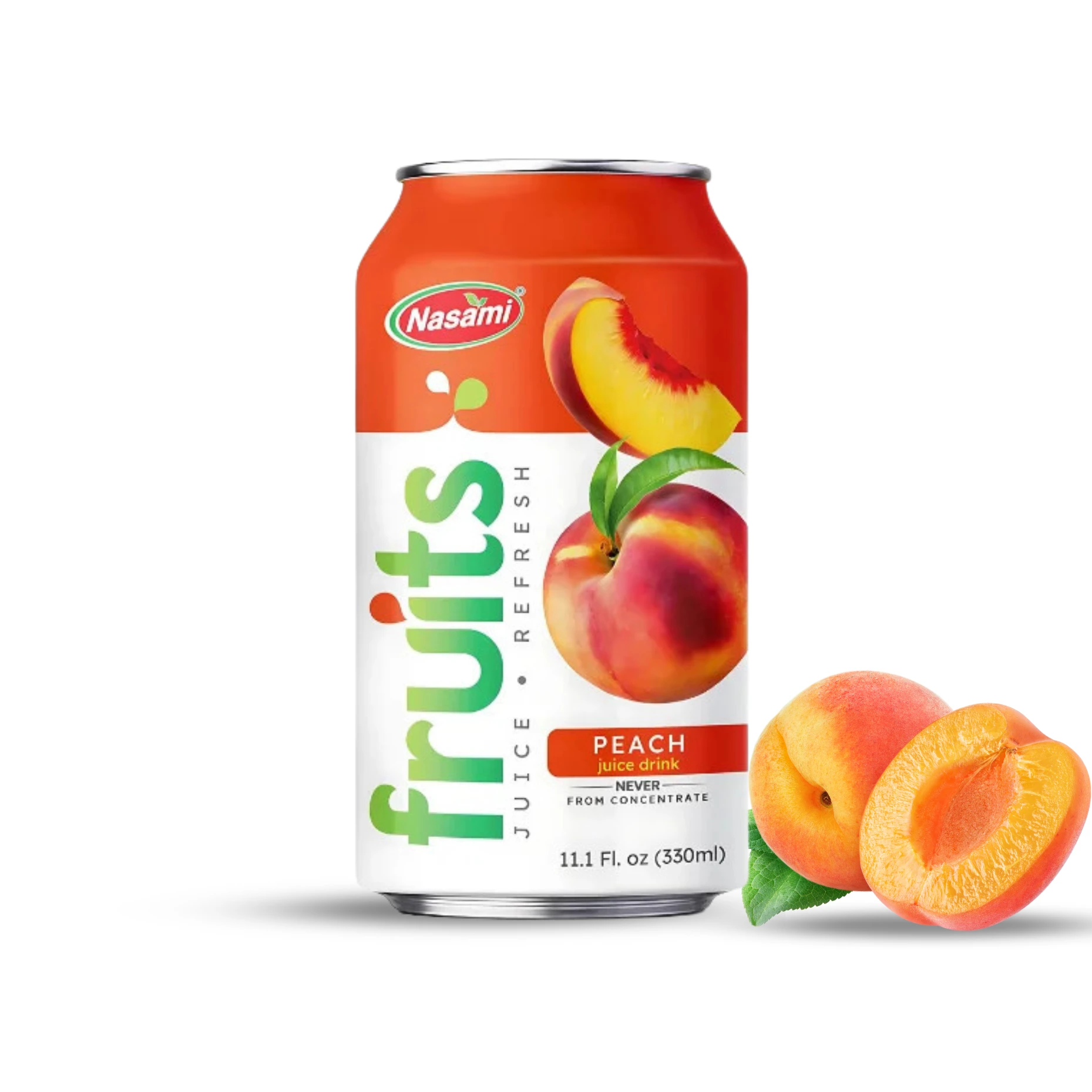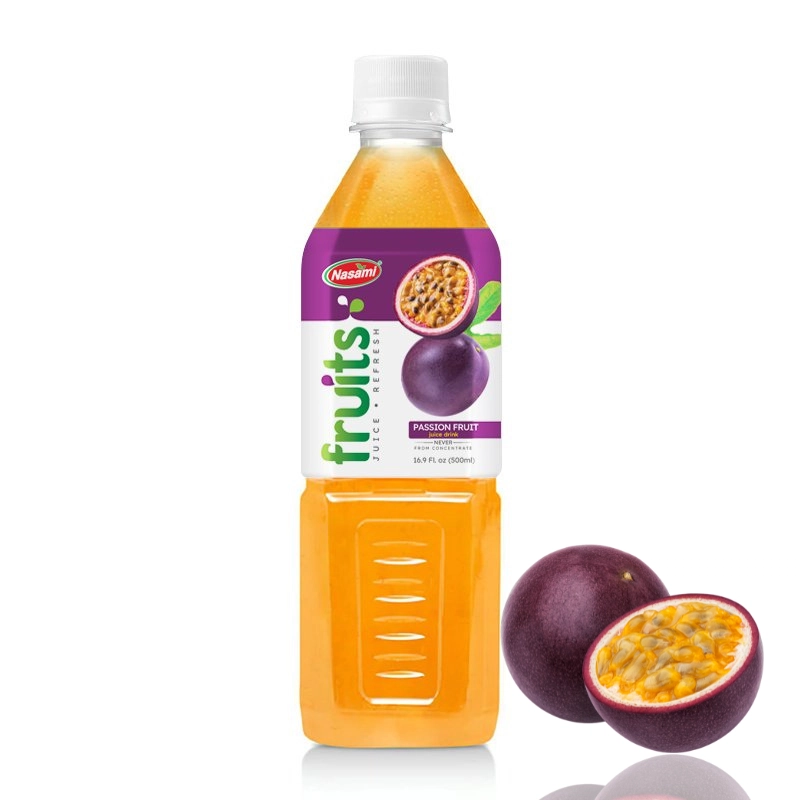Is Coconut Water Good For Cats?
Coconut water is a refreshing and healthy drink for humans, but is it the same for your feline companions? As more pet owners explore natural supplements for their cats, many wonder if coconut water—a popular health drink for people—can offer any benefits to their pets. It’s known for being hydrating, packed with electrolytes, and low in calories, making it an ideal beverage for humans. But can our feline friends enjoy the same benefits?
In this article, we’ll explore whether coconut water is safe for cats, its potential health benefits, and the risks involved. We’ll also touch on expert opinions from veterinarians to help you make an informed decision about whether this trendy drink is suitable for your cat.
Why It’s Important
With the rising popularity of natural remedies and holistic health treatments for pets, many owners are curious about adding coconut water to their cat’s diet. Natural supplements are increasingly favored, and the hydrating properties of coconut water seem like a perfect fit. But just because something is beneficial for humans doesn’t mean it’s automatically safe for animals. Understanding what is safe and healthy for your cat is crucial, especially when considering new, trendy products.
What is Coconut Water?
Coconut water is the clear, natural liquid found inside young, green coconuts. It’s often confused with coconut milk, which is a thicker, creamier substance made by grating the flesh of mature coconuts and mixing it with water. Unlike coconut milk, which is high in fat and calories, coconut water is light, low in calories, and praised for its hydrating properties.

Nutritional Profile:
Coconut water is rich in a variety of nutrients that make it popular among health-conscious individuals. Some of the key nutrients include:
- Potassium: Helps with muscle function and maintaining proper fluid balance.
- Magnesium: Supports muscle and nerve function, as well as energy production.
- Electrolytes: Coconut water is a natural source of electrolytes like sodium and potassium, making it a go-to drink for replenishing hydration.
- Vitamin C: An antioxidant that supports the immune system.
- Calcium and Phosphorus: These minerals contribute to bone health.
These components are what make coconut water a go-to hydrating drink for humans, especially after exercise or in hot weather. It’s naturally low in sugar and calories, making it a healthier alternative to sports drinks and sugary beverages.
Popularity in Human Diets
Coconut water has grown immensely popular in recent years, particularly in the well ness and fitness communities. It’s marketed as a natural sports drink due to its ability to rehydrate the body, replenish lost electrolytes, and boost energy with its natural sugars. This rise in popularity has led many pet owners to wonder if coconut water could offer similar benefits to their cats.
Given its nutritious profile and hydrating properties, some pet owners believe coconut water could be a healthy, natural supplement for their feline friends. However, the unique nutritional needs of cats, who are obligate carnivores, require careful consideration before introducing any new substances into their diet.
Can Cats Drink Coconut Water?
When considering adding any new element to your cat’s diet, it’s essential to understand its safety and potential benefits. Coconut water, a trendy health beverage for humans, has piqued the curiosity of many pet owners. But can cats drink coconut water? Let’s delve into the details to determine its suitability for your feline friend.
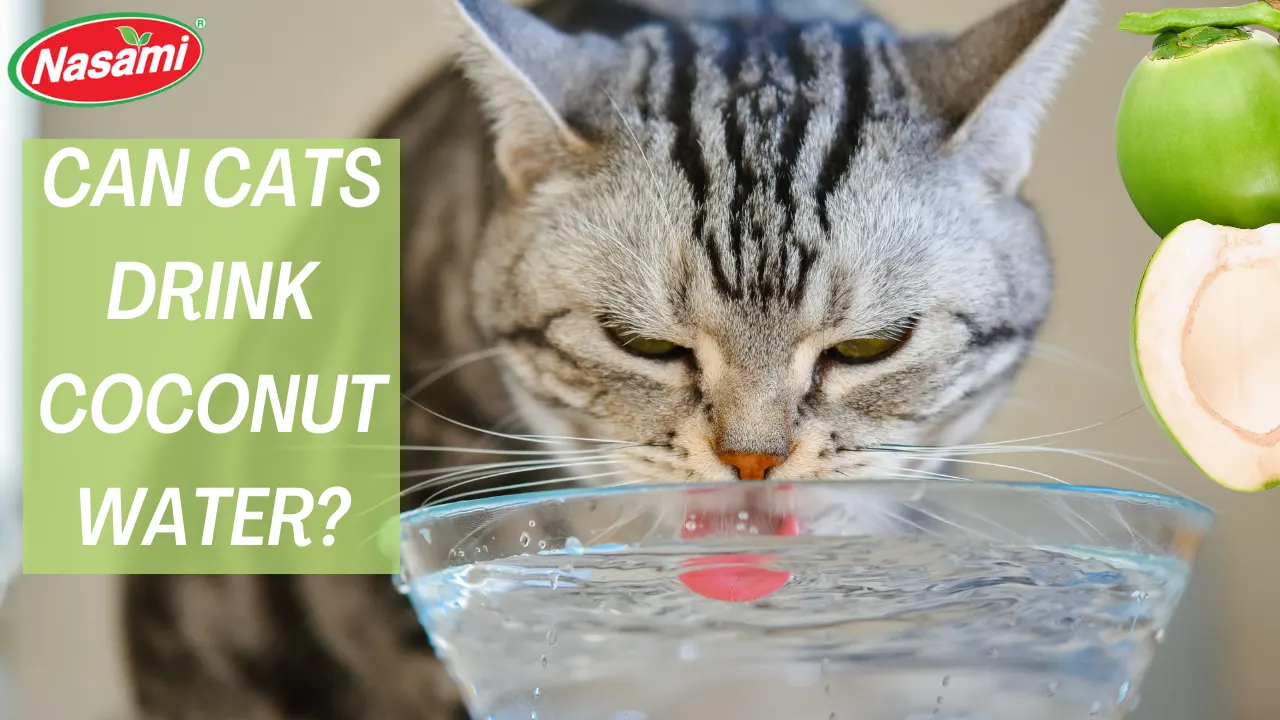
Safety for Cats:
Coconut water is generally non-toxic to cats, making it safe for occasional consumption. Unlike some other human beverages, it doesn’t contain harmful ingredients like caffeine, alcohol, or artificial sweeteners that can be detrimental to cats. However, just because it’s safe doesn’t automatically mean it’s beneficial for them.
Coconut water contains natural sugars and electrolytes, which in small amounts are not harmful. However, cats are obligate carnivores with specific dietary needs that differ significantly from humans. Their digestive systems are not designed to process sugary or carbohydrate-rich substances efficiently. Introducing coconut water without proper moderation can lead to unwanted side effects.
Additionally, while coconut water lacks the high-fat content found in coconut milk, it still contains certain minerals that, in excess, could potentially disrupt your cat’s electrolyte balance. Therefore, it’s crucial to approach the introduction of coconut water with caution and awareness of your cat’s overall health and dietary requirements.
Moderation is key when offering coconut water to your cat. Even though it’s non-toxic, overconsumption can lead to several issues:
- Sugar Intake: Coconut water naturally contains sugars, which can contribute to weight gain and increase the risk of diabetes in cats, especially if they are already prone to these conditions.
- Electrolyte Imbalance: While electrolytes like potassium and magnesium are beneficial in small amounts, excessive intake can lead to imbalances. High potassium levels, for example, can affect heart function and muscle control.
- Digestive Upset: Introducing any new substance abruptly can disrupt your cat’s digestive system. Overconsumption of coconut water may cause gastrointestinal issues such as diarrhea or vomiting.
Recommended Serving Size:
- Occasional Treat: Offer coconut water as an occasional treat rather than a daily supplement. A small amount, such as a teaspoon, is sufficient for most cats.
- Diluted Forms: Consider diluting coconut water with your cat’s regular water to reduce the concentration of sugars and electrolytes.
By adhering to these guidelines, you can minimize potential risks while still allowing your cat to enjoy the occasional taste of coconut water.
Veterinary Perspective:
Veterinarians play a crucial role in guiding pet owners on safe dietary practices. Most veterinary professionals agree that while small amounts of coconut water are not harmful to cats, it should not be a regular part of their diet. Here are some key insights from veterinary experts:
- Hydration Support: Some veterinarians acknowledge that coconut water can aid in hydration due to its electrolyte content, especially for cats recovering from illness or dehydration. However, they emphasize that plain water remains the best and most efficient means of keeping cats hydrated.
- Nutritional Necessity: Vets point out that cats obtain all the necessary nutrients from a balanced, high-quality diet formulated specifically for their needs. There is no nutritional requirement for coconut water in a cat’s diet.
- Individual Health Considerations: For cats with certain health conditions, such as kidney disease, heart problems, or diabetes, veterinarians often advise against giving coconut water. The high potassium levels and natural sugars can exacerbate these conditions.
- Potential Allergies: Although rare, some cats might be allergic to coconut products. Vets recommend monitoring for any signs of allergic reactions, such as itching, swelling, or gastrointestinal distress, after introducing coconut water.
- Professional Advice: Always consult with your veterinarian before adding any new treat or supplement to your cat’s diet. They can provide personalized recommendations based on your cat’s health history and current condition.
Conclusion from Vets:
- Safe in Small Quantities: Coconut water can be a safe, occasional treat when given in minimal amounts.
- Not a Substitute for Water: It should not replace fresh water or be used as a primary hydration source.
- Consultation is Essential: Prioritize professional veterinary advice to ensure your cat’s diet remains balanced and health is not compromised.
By taking into account the veterinary perspective, pet owners can make informed decisions about whether or not to include coconut water in their cat’s diet, ensuring the well-being and health of their beloved pets.
Health Benefits of Coconut Water for Cats
While coconut water is not essential in a cat’s diet, it may offer some limited health benefits when provided in moderation. Let’s take a closer look at how coconut water might benefit your feline friend:

Hydration
Coconut water is rich in electrolytes, including potassium, sodium, and magnesium, which are known to help with hydration. For cats, hydration is crucial, especially if they consume mostly dry food. While cats typically get most of their moisture from water and wet food, coconut water could offer a slight hydrating boost due to its electrolyte content. However, plain water remains the most effective and safest option for keeping your cat hydrated, especially since their bodies are more sensitive to the sugars found in coconut water.
Nutrient Support
Coconut water contains nutrients like potassium and magnesium, which play important roles in bodily functions. Potassium helps with muscle function and maintaining a healthy fluid balance, while magnesium is important for muscle and nerve function. While these nutrients are essential for humans, it’s important to note that cats get all the potassium and magnesium they need from their cat food. Therefore, the addition of coconut water, while not harmful in small doses, may not offer significant health benefits to cats beyond what they already obtain from a balanced diet.
Digestive Aid
Coconut water contains a small amount of fiber, which may offer a mild digestive benefit for cats. Fiber can help regulate bowel movements and support healthy digestion, particularly for cats that experience occasional constipation. That said, the amount of fiber in coconut water is minimal, so while it could provide a slight boost to digestion, it is not enough to treat digestive issues or act as a reliable source of dietary fiber for cats. Always consult your vet if your cat has ongoing digestive problems.
Antioxidant Properties
Coconut water contains antioxidants, which help combat free radicals and reduce oxidative stress in the body. While this is a well-known benefit for humans, there is limited research to show whether these antioxidants have a meaningful impact on cats. Cats already produce their own powerful antioxidants, like glutathione, which means they don’t need external sources in the same way humans might. That said, a small amount of coconut water is unlikely to harm your cat, but it’s not clear that the antioxidants would provide significant health benefits.
Skin and Coat Health
Some believe that the nutrients in coconut water, particularly potassium and antioxidants, may contribute to healthier skin and a shinier coat in cats. While there is no direct evidence supporting this claim in cats, anecdotal reports suggest that coconut water, when given occasionally, may help improve the overall condition of a cat’s fur and skin. However, any perceived benefit is likely minor, and a healthy diet with proper hydration is the most effective way to maintain skin and coat health in cats.
Risks and Side Effects of Coconut Water for Cats
While coconut water may offer some hydration and nutrient benefits, it also carries several risks when given to cats, particularly if consumed in large quantities or frequently. Understanding these potential dangers is essential to making informed decisions about your cat’s diet.

High Sugar Content
One of the main concerns with coconut water is its natural sugar content. Although coconut water contains less sugar than many other beverages, it still has more than what is ideal for a cat’s diet. Cats are obligate carnivores and have no need for added sugars. Regular or excessive consumption of coconut water could lead to weight gain, obesity, and even an increased risk of diabetes in the long run. For cats, high sugar intake can contribute to poor dental health and insulin resistance, making it vital to keep any coconut water intake minimal and infrequent.
Sodium Levels
Coconut water also contains sodium, which can be problematic for cats, especially those with pre-existing kidney or heart conditions. Cats with kidney disease are often put on low-sodium diets, and even small amounts of coconut water could contribute to an increased sodium intake that may worsen their condition. For healthy cats, sodium isn’t usually a major concern in small amounts, but for cats with health issues, the extra sodium from coconut water could lead to complications, including dehydration or high blood pressure.
Allergies
While not common, some cats may develop allergic reactions to coconut products, including coconut water. Symptoms of an allergy may include itching, swelling, difficulty breathing, or digestive problems like vomiting. If you’re introducing coconut water to your cat for the first time, monitor them closely for any signs of an allergic reaction. Even if they don’t show an immediate response, some cats can develop sensitivities over time, so it’s important to proceed with caution.
Digestive Issues
One of the most frequent side effects of giving coconut water to cats is gastrointestinal upset. Because cats are not accustomed to consuming sugary or plant-based liquids, coconut water may cause diarrhea or vomiting if given in large quantities. Some cats may be more sensitive to it than others, so even a small amount can trigger an upset stomach. If your cat shows signs of discomfort, it’s best to stop offering coconut water altogether.
Interaction with Medications
Another concern is how coconut water might interact with medications your cat is taking. For example, if your cat is on medications that affect electrolyte balance, such as certain heart or kidney medications, coconut water’s potassium content could interfere with how these drugs work. Cats with kidney disease may have trouble processing potassium, leading to an unhealthy buildup of the mineral. Always consult your veterinarian before giving your cat coconut water, especially if they are on any medications or have existing health issues.
How to Safely Offer Coconut Water to Cats
If you decide to offer coconut water to your cat, it’s essential to do so safely and responsibly. While it’s generally safe in small quantities, there are specific steps you can take to minimize any potential risks. Here’s how to ensure your cat can try coconut water without compromising their health.
Small Quantities
The key to offering coconut water to your cat is moderation. Cats do not need coconut water for hydration or nutrition, so it should only be given in very small amounts. A good rule of thumb is to start with a teaspoon of coconut water, especially if it’s their first time trying it. This will allow you to observe how they react before giving them more. Coconut water should be an occasional treat rather than a regular part of their diet, and any portion should remain minimal to avoid overloading them with unnecessary sugars or electrolytes.
Unsweetened Varieties
If you choose to give your cat coconut water, make sure to select unsweetened, natural varieties. Many commercial coconut water products contain added sugars, preservatives, or flavorings that are harmful to cats. Always read the label carefully to ensure the coconut water is free of additives. Stick to pure, 100% coconut water with no added ingredients. Cats do not need extra sugar in their diet, so avoiding these varieties is crucial to prevent health issues like obesity or diabetes.
Monitor Reactions
Whenever you introduce something new to your cat’s diet, it’s important to monitor their reactions closely. After giving them coconut water, watch for any signs of discomfort or adverse reactions such as vomiting, diarrhea, or lethargy. These symptoms could indicate that your cat’s digestive system isn’t handling the coconut water well. Even though coconut water is generally safe, some cats may be more sensitive to it than others. If your cat experiences any negative reactions, discontinue offering coconut water immediately.
Veterinary Consultation
Before giving coconut water to your cat, it’s always a good idea to consult with your veterinarian. This is especially important if your cat has any existing health conditions, such as diabetes, kidney disease, or heart problems. Your vet can offer personalized advice based on your cat’s health and determine whether coconut water is a safe option for them. They can also guide you on the appropriate amount to offer and help you monitor any potential interactions with medications your cat may be taking.
Alternatives to Coconut Water for Cats
While coconut water may seem like an appealing option for hydrating your cat, there are several alternatives that are safer and more appropriate for their dietary needs. Here are some excellent substitutes that can help ensure your cat stays hydrated without the potential risks associated with coconut water.

Plain Water
The best and most essential source of hydration for your cat is fresh, clean water. Cats should always have access to water, as it plays a vital role in their overall health and well-being. Unlike coconut water, plain water does not contain any sugars or additives that could negatively affect your cat’s health. Ensure that your cat’s water bowl is cleaned regularly and refilled with fresh water daily. Some cats may prefer running water, so consider investing in a cat water fountain to encourage them to drink more.
Wet cat food
Is another excellent option for increasing your cat’s hydration. This type of food contains a higher moisture content—typically around 70-80%—which can significantly contribute to your cat’s overall water intake. Cats that eat primarily dry food may not get enough hydration, making wet food a beneficial addition to their diet. Not only does it help with hydration, but it also provides essential nutrients that are vital for your cat’s health.
Electrolyte Supplements
For cats that may need extra hydration support, particularly after illness, vomiting, or dehydration due to hot weather, consider using cat-specific electrolyte solutions. These supplements are designed to meet the unique nutritional needs of cats and can provide the necessary electrolytes without the added sugars found in coconut water. Always consult your veterinarian for recommendations on the best electrolyte solutions for your pet.
Broth
Low-sodium broth can also be a safe and tasty alternative to coconut water for boosting your cat’s hydration. Bone broth or chicken broth (without any added seasonings or onions) can be an enticing treat for your cat, encouraging them to drink more fluids. Broth can be offered as a drink on its own or used to moisten dry cat food. Just ensure that the broth is low in sodium, as high sodium levels can pose health risks to cats.
Ice Cubes
Another simple and fun way to encourage your cat to stay hydrated is by offering ice cubes. Some cats are intrigued by the movement and cool sensation of ice cubes, making it a playful way to get them to drink more water. You can either add the cubes to their water bowl to keep the water cool, or let them bat the ice cubes around on a clean surface, which may eventually lead them to lick or bite the ice for hydration. This is a safe and calorie-free alternative that can also help keep your cat cool, especially during hot weather. Just make sure the ice cubes are made from clean, filtered water without any additives.
